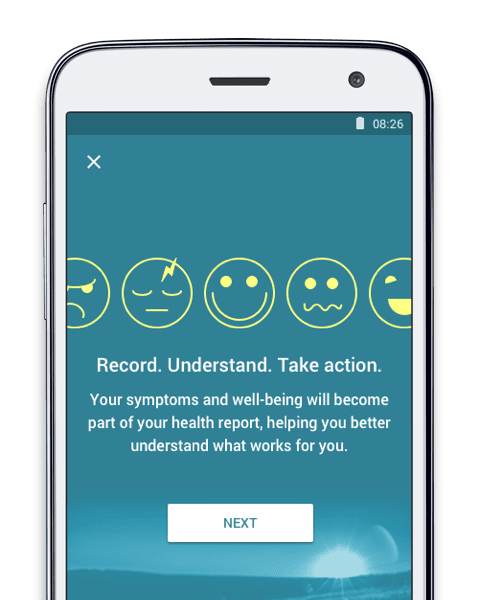Both eczema and psoriasis refer to groups of diseases that cause skin irritation. Of the different variations of each, atopic dermatitis (or atopic eczema) is the most common form of eczema and plaque psoriasis is the most common form of psoriasis. Although symptoms may be similar, the two diseases differ in numerous ways.
The Differences Between Eczema and Psoriasis
Although the symptoms of eczema and psoriasis are often visually similar, the two conditions vary considerably when it comes to issues including causes, triggers, the age at which they usually occur, and the risk of developing other conditions.
1. Difference Between Eczema & Psoriasis: Age of Onset & Prevalence
Eczema: The Childhood Condition
Although the first signs and symptoms of eczema can occur in adulthood, half of the time they happen before a baby’s first birthday and in 95% of cases before a child reaches five.
It is widely estimated that two-thirds of children with eczema grow out of the disease and are usually symptom-free by their teenage years. However, this commonly-quoted timeline has been challenged, with some studies suggesting symptoms persist – at least to some degree – well into adult years.
What is widely agreed on, however, is that a careful skincare routine, even when eczema is under control, will usually help minimize symptoms and flare-ups over time.
Eczema is an extremely common condition, occurring in 10% to 20% of infants. It is estimated that up to 70% of people experience eczema during their lifetime.
Psoriasis: Can Occur Any Time
While most eczema cases start at a young age, psoriasis symptoms can begin at any time in one’s life. Symptoms most commonly begin between 15 and 30 years of age, although 10% to 15% of the time they begin before age 10.
While psoriasis is far less common than eczema, it is one of the most prevalent autoimmune diseases in the US, affecting over 8 million people. For reference, around 14 million live with Hashimoto’s, 1.5 million with lupus, 1.3 million with rheumatoid arthritis, and 1.3 million with type 1 diabetes.
It is estimated that at least 10% of the population have a genetic predisposition to psoriasis, although the above number means 2% to 3% actually develop the disease.
2. Difference Between Eczema & Psoriasis: Causes & Triggers
Psoriasis: An Autoimmune Disease
Psoriasis, as noted above, is widely believed to be an autoimmune disease. Autoimmune diseases occur when your immune system attacks your body’s own tissue as though it were a virus or infection.
The way the immune system attacks the body defines the disease. For example, when it attacks the fatty substance (myelin) surrounding nerve cells it causes multiple sclerosis (MS), and when it attacks the joints it causes the inflammation that is ubiquitous in cases of rheumatoid arthritis.
In the case of psoriasis, the immune system triggers a rapid production of skin cells, an excess of which results in the plaques that characterize psoriasis. It is not known why the immune system does this, although both genetic and environmental factors are believed to play a role.
About 25 different genetic variants have been linked to psoriasis. As previously mentioned, having one or more of those genes makes it more likely you will develop psoriasis, but does not guarantee it, which is why some environmental factors almost certainly contribute.
Those who do develop psoriasis will often experience ‘flares’, during which symptoms are heightened. In between flares, symptoms will often subside or go into remission.
Different things can trigger flare-ups in different people, but some of the most common triggers include cold or dry weather, stress, smoking, alcohol, certain medications, infections, cuts and bruises, and hormones. When it comes to hormones, it is common for symptoms to worsen during puberty and, in women, menopause. The latter has been attributed to decreasing estrogen levels.
Learn more about autoimmune disease in our 3-part series:
- Autoimmune Disease Series: What is Autoimmune Hepatitis?
- Autoimmune Disease Series: What is Autoimmune Encephalitis?
- Autoimmune Disease Series: What is Autoimmune Thyroid Disease?
Eczema: Associated with Allergies
Eczema is not classed as an autoimmune disease; the specific cause of the condition is not well understood.
Genetic factors certainly play a role, as children who have a parent or sibling with the condition are more likely to develop it themselves (a risk that increases with each additional direct relative living with the condition).
The most common gene to have been identified in relation to eczema is called filaggrin (FLG), which plays an important role in the make up of the outer layer of skin (called the epidermis) and the skin barrier.
The skin barrier helps keep skin hydrated and protects the body from invaders such as allergens (substances that cause allergic reactions).
It is hypothesized that low levels of filaggrin dry the skin out and make reactions to irritants such as certain soaps and shampoos more likely. In addition, allergens such as pollen may be more likely to enter the body and cause inflammation.
While eczema is not an autoimmune disease, like psoriasis, it has long been linked to an overactive immune system. The specific nature of the immune system’s role is still being explored; a study published last year suggests the immune system’s response to allergens may be directly responsible for the aforementioned defective skin barrier.
Triggers for flare-ups of eczema are usually different to those of psoriasis. Certain foods, including eggs, dairy, and citrus fruits, are common triggers. Doctors may perform a ‘elimination diet’ to help pinpoint food-related triggers, which involves removing foods from a diet and then slowly reintroducing them to learn which one(s) lead to flare-ups.
Other triggers include dry skin, which can be combated with moisturizing, and irritants such as certain metals, soaps and fragrances, chemicals, cigarette smoke, synthetic materials (such as nylon and polyester), and sweat. One commonly citer trigger eczema shares with psoriasis is stress.
3. Difference Between Eczema & Psoriasis: Related Diseases
Living with eczema or psoriasis has been linked to an increased risk of developing other conditions (comorbidities).
Eczema: Increased Risk of Other Allergic Diseases
The word ‘atopic’ in atopic eczema refers to a genetic predisposition to overproduce immunoglobulin E (IgE) in response to allergens. IgE is an antibody that is usually present in the blood in very small amounts and too much of it can trigger significant inflammatory reactions.
Many people living with eczema have high IgE levels and are more likely to develop other atopic diseases (those related to allergies) such as asthma and hay fever, as well as food allergies including milk, eggs, nuts, fish, wheat, and soy. These foods are also common triggers for flare-ups of eczema.
The term ‘Atopic March’ refers to the common sequence of babies first being diagnosed with eczema (and, perhaps, a food allergy), then later in childhood developing allergic rhinitis (hay fever), and finally asthma.
The connection between these conditions is not fully understood, although it is widely believed that weaknesses to the skin barrier, as mentioned previously, plays a significant role in allergens entering the body.
However, it is not known whether the cycle starts with a skin problem that weakens the skin barrier and subsequently allows allergens into the body, or whether the immune system overreacts to allergens and causes inflammation, which subsequently damages the skin barrier.
Regardless, the connection between eczema and other atopic diseases and food allergies is well established. It has also been observed that the earlier one develops eczema and the more severe the symptoms, the more likely the atopic march will occur.
Psoriasis: Autoimmune & Cardiovascular Comorbidities
It is only relatively recently that the autoimmune mechanism of psoriasis has been identified. However, it is key in understanding the primary comorbidities a person living with the condition are at risk of developing.
Certain genes have been linked with multiple autoimmune conditions, meaning a person with a genetic predisposition to one autoimmune disease is likely to be susceptible to another condition as well. As a result, around one in four people diagnosed with an autoimmune disease develop at least one other such disease in their lifetime.
Not surprisingly, given its name, psoriatic arthritis – also autoimmune – is a common condition those living with psoriasis are at risk of. It occurs when the inflammation of the skin – the ubiquitous characteristic of psoriasis – begins to affect joints, thus causing arthritis. Around 20%-30% of people with psoriasis develop psoriatic arthritis, most commonly between 30 and 50 years old.
Other conditions linked to psoriasis are:
- Metabolic syndrome
- Osteoporosis and Osteopenia
- Crohn’s Disease and Ulcerative Colitis
- Cancer
- Uveitis
- Cardiovascular Disease
Those with severe psoriasis and/or psoriatic arthritis appear to have the greatest risk of developing comorbidities. The good news is that our understanding of psoriasis has improved drastically in recent years, which has subsequently improved treatment. Effective psoriasis treatment appears to mitigate the risk of subsequent conditions occurring.
You can read more about conditions linked to psoriasis here:
Similarity Between Eczema & Psoriasis: Mental Health
Although very different in nature, eczema and psoriasis appear similar on the surface and are both ‘visible’ diseases. For both children and adults, being stared at or having people avoid you for fear of contagion can have a profound impact on mental health and the risk of developing depression, social anxiety disorder, and other such conditions is high. Mental health was a subject discussed by two guest authors on this blog, Howard Chang and John Redfern, both of whom live with psoriasis. You can read them here:



